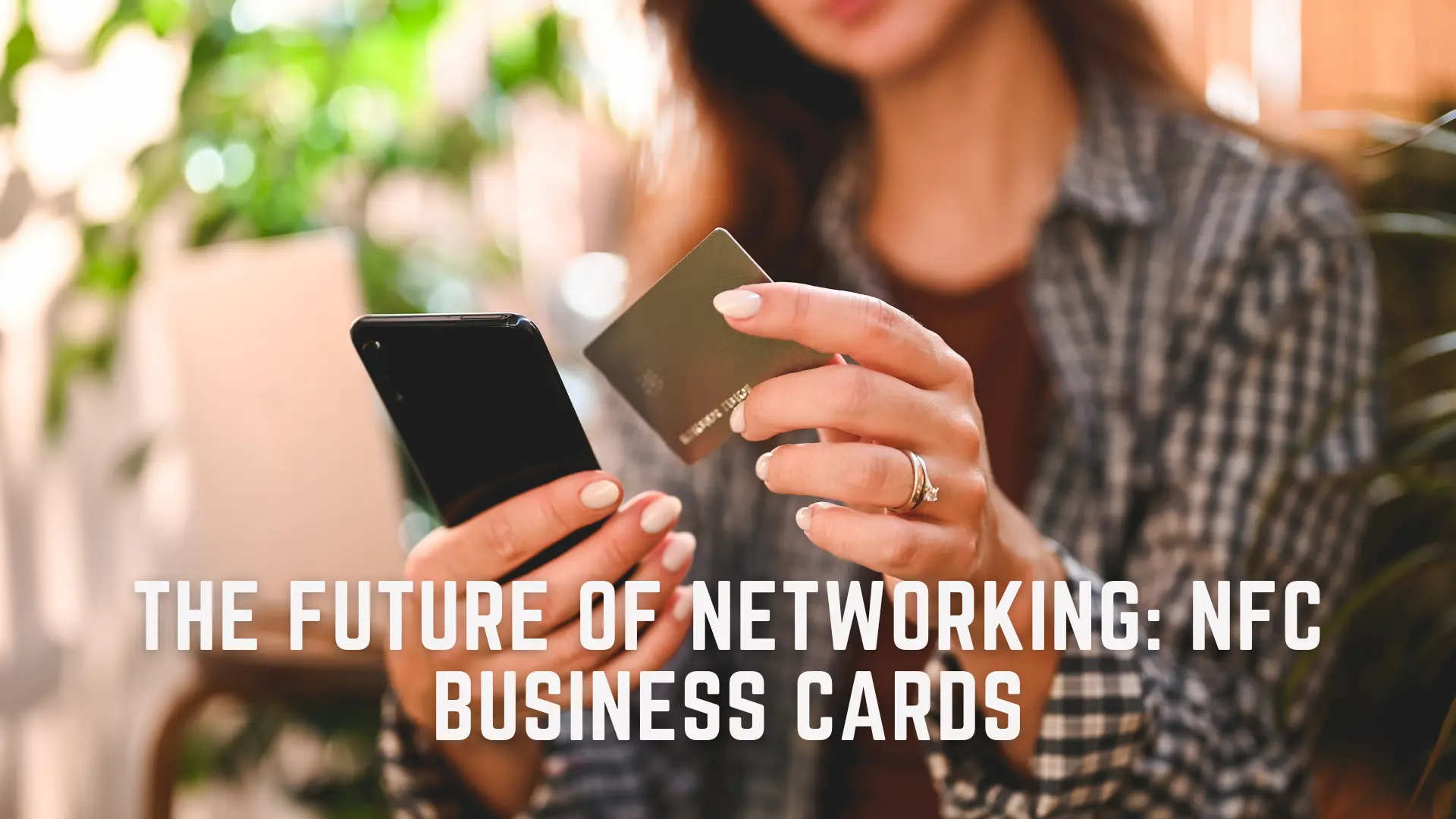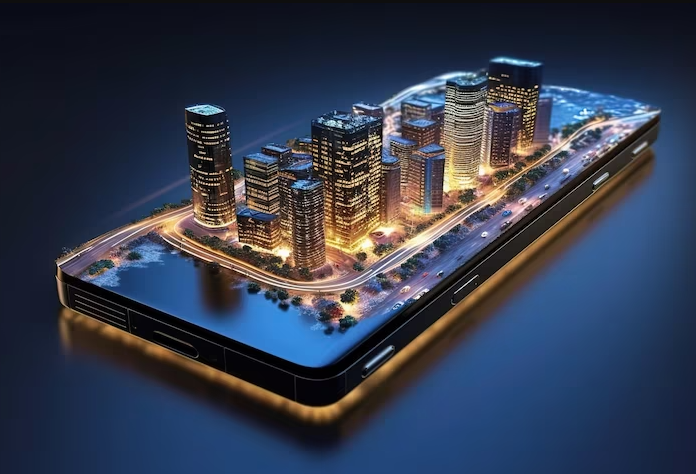The speed at which we connect, communicate, and share information today has totally replaced the older ways of doing these very things. Perhaps one of the most conspicuous changes, however, has to do with digital alternatives which have replaced traditional means of exchanging contact information. Of these, none is more functional and innovative than NFC business cards. These are the cards that have finally gotten rid of the mediocre practice of sharing paper business cards, which are frequently misplaced or forgotten. It replaces a traditional business card with networking in an interactive fast-moving modern way.
Below, we outline reasons why NFC business cards are very fast becoming the go-to option over traditional business cards. We go over the pros and cons of both methods in the post. Understanding the benefits of this new emerging technology will help professionals and businesses understand what options are available to make informed choices as they connect in today’s digital age.
The Basics: Traditional Business Cards versus NFC Business Cards
Business Cards-Olde Style
A traditional business card is a printed card used by professionals while meeting, attending conferences, and networking events. A traditional business card would typically bear your name, job title, company, phone number, email, and sometimes your website or social media handle. They have been an integral part of professional networking for a couple of decades now. Traditional business cards still do have a couple of drawbacks.
Traditional Business Cards: Advantages
Physical Touch: This is one of the strong points that physical traditional business cards have over others, and may be considered a tangible connection. Actually giving a person a business card may leave a more memorable and personal touch. This is the professionalism involved in the physical exchange of contact information.
Affordability: It is in the range of affordability for small businessmen or professionals with shoestring budgets. As a fact, business cards will be well within the reach of most professionals if one orders in bulk. Paper business cards are much cheaper per unit.
They are also distributed with ease amongst any number of people in face-to-face interaction, conferences, or events. Indeed, no need for special technology; thus, they are within the reach of all people irrespective of their technical capabilities.
Limitations of Traditional Business Cards:
Limited Information-Carrying Space: Conventional business cards are made out of limited space. While these may carry all the basic contact information, they are too small to be able to share the more elaborative kinds of content such as portfolios, social media links, or even multimedia presentations.
Easily Lost or Destroyed: Paper business cards get misplaced, torn, or destroyed.
This results in lost potential connections. Since most people amass volumes of them, they end up discarding the cards or forgetting to follow through with the contact.
Static Information: Once it is printed, business cards are rather tricky to update. In case of a phone or email change, one has to reorder another batch, which once again adds cost to the expense and possible waste.
NFC Business Card
NFC business cards relate to information sharing; near-field communication enabled the technology of such cards. Each will have a minute NFC chip that can wirelessly beam the data into some other NFC-enabled device—usually a smartphone or tablet. All that a user needs to do to share all contact information, a website address, a social media profile, or even some sorts of multimedia content is tap the card against the recipient’s device.
Advantages of NFC Business Cards:
Interaction and Rich Information: An NFC card does rather a lot more than a regular card. With just a tap onto any smartphone, it presents a whole digital portfolio, websites, social media profiles, and even videos or presentations. It’s cool enough, therefore, to link to such stuff, which makes the NFC card an engaging means toward more than basic contact information.
Always Current: Probably the single most significant advantage of business cards on NFC is that they are remotely updatable. The minute you change your contact or company information, it automatically reflects in real-time on your card so that always the latest version of your information gets shared rather than your having to reprint them.
Eco-friendly: The use of NFC business cards reduces the wastage of paper. That factor appeals to the eco-sensitive thinking of today because, instead of having to print batch after batch, an NFC card can be reused ad infinitum—hence, very useful for professionals who want to have the least impact on the environment.
Convenience: It allows the receiver to store your details in their smartphone contact list without any inconvenience. They can do that simply by just tapping their phones, with no need to input their details. That minimizes chances of error and hence helps in speedy networking.
Disadvantages of NFC Business Cards:
Requires NFC-capable Devices: Speaking to this fact, an NFC business cards will only do its magic in cases where the other person happens to have a fully supportive phone of NFC. Now, although most modern smartphones boast of having NFC capabilities, not every model does so—whether an older model or a low-budget variant.
Higher Upfront Cost: While regular business cards are rather inexpensive, adding technology in these NFC cards makes them a little costly at the outset. However, it will be a worthwhile investment because the NFC cards won’t have to be reordered, and they are in an advantageous position in comparison to paper cards.
Privacy Concerns: This is similar to all new technologies that come up. There is some apprehension about how secure the data is and therefore how secure personal privacy will be. Some people may not want their personal information shared electronically. It puts them in a paranoid state of mind, fearing unauthorized access. They worry that someone who shouldn’t see the information might gain access to it.
Ensuring the cards are secure and share only necessary information will be key to overcoming this barrier.
NFC Business Cards: How They Work in Modern Networking
In modern times, professionals find it far easier to network and get across digitally. And an NFC business card fits the bill just right, making the exchange of information seamless and really tech-savvy. Here’s how they upgrade networking:
Instant Digital Connect: Be it business conferences, client meetings, or networking events, NFC cards provide you with a facility to share contact details, a portfolio, and digital content with just a tap. This is quick and efficient, thus leaving a long-lasting impression without fumbling through a stack of paper cards.
Support for Remote Interaction: The world now embraces remote and virtual work. Even NFC business cards can be shared on virtual platforms.
In that regard, the cardholder can share a link or QR code that connects directly to their NFC profile.
This ensures networking is not limited to face-to-face interactions only.
Branded: By embedding a logo, using custom colors, and personalizing URLs, NFC business cards will help reinforce one’s brand with each use.
Access to Analytics: With a tap of an NFC business card, users can track how many of their cards were tapped and where those taps originated.
This way, they gain valuable insights into how well their networking efforts work and where they may
need to follow up with more strategy.
Why NFC Cards Outshine QR Code Cards
While the usage of QR codes is more universally recognized than NFC technology, there are clear-cut advantages to using NFC for business cards.
Firstly, most modern smartphones already have integrated NFC. Therefore, they do not need third-party apps to scan QR codes.
While QR codes normally engage a person in taking and scanning pictures for information retrieval, in NFC technology,users can store data locally.
Users will, therefore, have access to information without necessarily having access to the internet, which is
usually impossible in the use of QR codes.
Thirdly, the NFC cards are characterized by ease of utilization and friendliness in experience.
After all, merely tapping a card is much easier and more intuitive than opening either a camera or an app
to scan a QR code.
Read more: Upcoming Trends in Data Science and Technology
Conclusion:
The bottom line is this: the traditional business card has long been a hallmark of professionalism. It has even been a stepping stone in developing one’s networking. However, an NFC business card is the future. It fits the needs of the modern, tech-savvy professional. By going interactive, time-saving, and eco-friendly, it offers an upgrade.
Be it as a freelancer, a business owner, or a corporate executive, entering the NFC business card domain would most definitely prove a smart move for bringing in an upgrade in the game of networking and leaving a mark.



